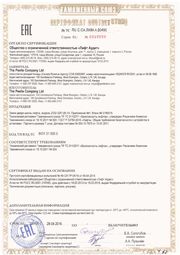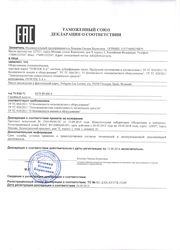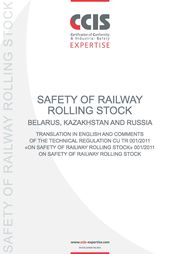Technical Regulation CU TR 024/2011 on safety of oil and fat products: main definitions
Technical Regulation CU TR 024/2011 on safety of oil and fat products adopted in the framework of the Customs Union between Russia, Belarus and Kazakhstan by the Decree No. 883 of December 09, 2011 of the Commission of the Customs Union came into force on July 01, 2013.
Scope and relevant products
CU TR 024/2011 establishes requirements for alimentary and non-alimentary products.
Alimentary products:
- plant oils and its fractions
- refined deodorized oils (fats)
- margarine
- fats of special application, for example, culinary, confectionary and for baking of bread
- milk fat substitutes
- cocoa butter equivalents
- plant oil based sauces and cremes
- mayonnaise and its sauces
- distilled glycerin
Non-alimentary products:
- raw natural glycerin
- laundry soap
The requirements of CU TR 024/2011 do not apply to:
- oil and fat products as a result of non-industrial production with the exception of plant oil
- non-alimentary oil and fat products with the exception of raw natural glycerin and laundry soap
Market Launch
Prior to launching oil and fat products onto the Customs Union market, the manufacturer / representative should:
- comply with the basic health and safety requirements mentioned in the Technical Regulation CU TR 024/2011
- apply procedures for conformity assessment
- obtain conformity documents: certificate of conformity or register the type of vehicle or chassis, as well as make sure that the latter is included in products
- make sure that products bear the EAC mark
In practice, any products coming onto the Customs Union markets (sales outlets and commissioning sites) after customs clearance should include originals / certified copies of certificates of conformity.
We offer solutions for:
- obtaining documents of conformity or registration of type;
- advising on product labeling and on documents required for issuing documents of conformity;
- organizing and supporting on-site inspections at the point of production by authorized experts;
- testing and analyzing your products in authorized laboratories;
- developing specifications and reference systems for voluntary certification;
Additional services:
- monitoring of sector-specific regulations
- monitoring of regulations: to pre-ensure that your products conform to all imposed requirements. for example: prediction analysis of serial production
- providing applicable regulatory documents for your products (translation and comments by our experts)
- consulting in terms of regulatory risk management
Conformity Marking EAC
The conformity mark "EAC" (EurAsian Conformity) consists of an acronym. It means that the products certified are compliant with the essential health and safety requirements of the Technical Regulations of the Customs Union.
The products for which the certificate of conformity in accordance with the chapter No. 6 of the CU TR 024/2011 was obtained have to be marked with the conformity mark "EAC" before their launch on the market. Every product, as well as their accompanying documents and package, must be marked with the conformity sign "EAC".
Statutory reference
The text in English and/or French of the Technical Regulation of the Customs Union CU TR 024/2011 on safety of oil and fat products with comments of CCIS-EXPERTISE experts is available in our e-shop.














